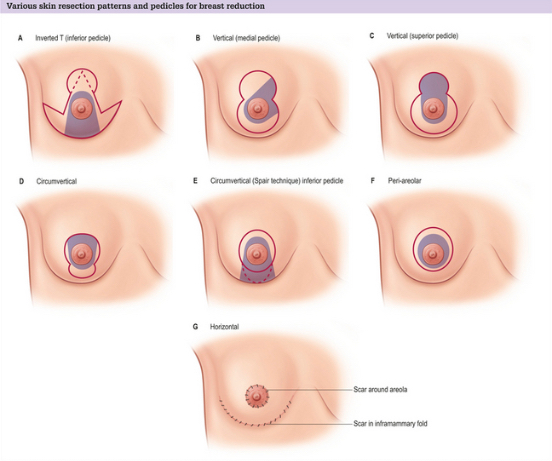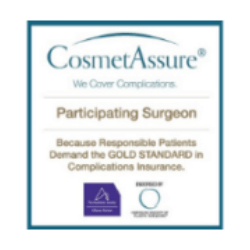Breast Reduction Atlanta
Remove excess breast fat and tissue and feel comfortable with your body again
What is a Breast Reduction?
A breast reduction removes excess breast tissue and reshapes the breast, providing a lift as well as repositioning of the nipple areola complex, while also improving symmetry. Breast reduction patients are among a plastic surgeon’s happiest, because of the easing of back, neck, and shoulder pain that can result from having large, heavy breasts. Undergoing a breast reduction is a big decision, but one that leads to a dramatic improvement in breast size, shape, symmetry, and nipple position when the procedure is done well.
Breast Reduction Consultation
Dr. Patel is familiar with several styles and patterns of breast reductions. When discussing breast reduction surgery with a plastic surgeon, you may hear the term “pedicle,” which refers to the blood supply pattern of your contoured breast underneath the skin. Dr. Patel utilizes superior, inferior, and superomedial pedicles, and the choice of pedicle depends on your individual anatomy and breast measurements, your desired postoperative breast size, and the amount of tissue Dr. Patel must remove.
Your body mass index, or BMI, plays a significant role in your overall healing potential and in avoiding complications. Dr. Patel will recommend against surgery for those with BMIs in excess of 40 kg/m2. An optimal BMI is less than 30. BMIs between 30 and 40 is a “gray area,” and Dr. Patel will often take on your case, but it will require a careful discussion of risks and benefits before agreeing to proceed. The greater your BMI, the higher the risk for serious wound healing complications, which leads to more frequent office visits and even further procedures.
If there is a significant chance of the nipple areola complex not surviving well on its pedicle, it may lead to necrosis or tissue death of the nipple. Dr. Patel will discuss with you the chances of this occurring, and if these are high, he will discuss the potential need for free nipple grafting, in which the nipple is shaved off like a skin graft and put back onto the breast to heal into place. Free nipple grafts generally heal well but can lose pigment and will inherently restrict you from breastfeeding if you plan on having children in the future.
Breast Reduction consultation


What to Expect After Breast Reduction
Assuming your occupation does not involve heavy lifting, and you are able to stop use of postop narcotics fairly quickly, expect to take at least 1-2 weeks off from work to recover. You must limit use of the arms for a few weeks to avoid pulling on sutures or causing inadvertent bleeding. During this period, relief of back, neck, and shoulder pain can be as immediate as in the recovery room, although in other cases, it can be a gradual process.
Best Candidates for Breast Reduction
You’re a good candidate for breast reduction if:
- Your breasts are oversized
- You’re suffering from physical and social discomfort
- You’re not pregnant or breastfeeding
- You understand the risks associated with the procedure
- You have realistic expectations
Breast Reduction FAQs
Major national societies, such as the American Society of Plastic Surgeons, no longer endorse routine use of closed suction drains for breast reductions. However, large breast reductions do create a lot of internal raw surface area, which tends to weep seroma fluid. If your body produces more seroma than it can absorb, that can lead to fluid trapping, which can be very uncomfortable and increase your risk for infection. Dr. Patel will place a drain if he finds that he is removing over 500 grams of tissue per breast. To put things in perspective, 1 kilogram is equivalent to 2.2 pounds, so 500 grams is 1.1 pounds of tissue.
Insurance can cover breast reduction surgery, but there are different criteria depending on which insurance carrier you have. The initial consultation you have with Dr. Patel is very important in helping make that determination. There are also “homework” items you will need to do in advance of the consultation that will maximize your chances of obtaining successful insurance coverage or precertification. Call our office in advance to learn about these requirements. You may very well need a breast reduction, but without all of the supporting documentation, the approval process will not succeed.
An insurance denial is, unfortunately, a frequent occurrence in plastic surgery practices, even if both the patient and the surgeon believe breast reduction surgery is medically necessary. There are other avenues such as insurance appeals of the decision and peer-to-peer discussions with a qualified physician at the insurer. However, Dr. Patel will typically advise you to consider proceeding with surgery on a fee-for-service basis, or else recommend that you obtain more supporting documentation to ensure a successful insurance submission.
















